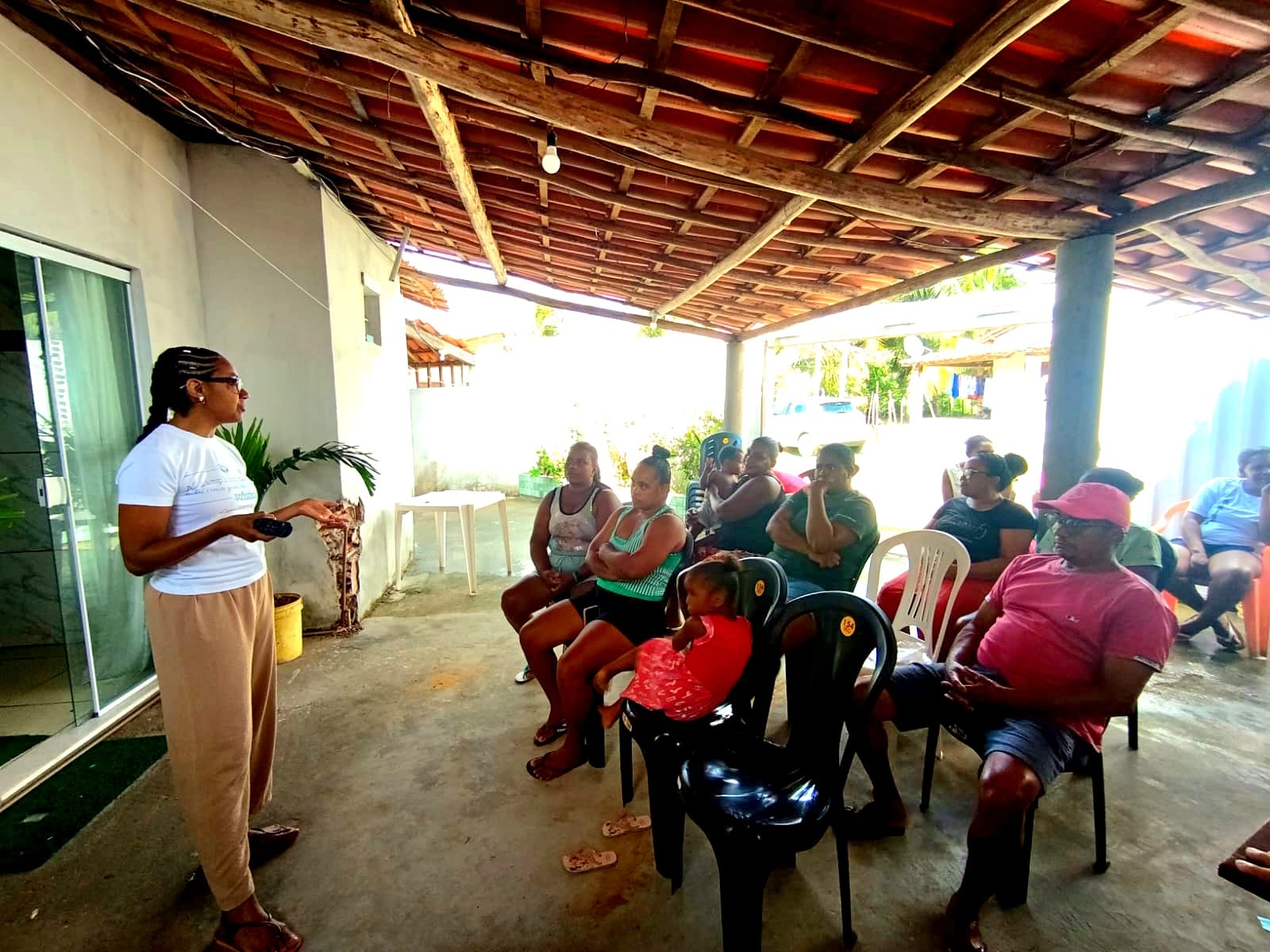
Between October 23 and 25, Raízes Desenvolvimento Sustentável visited Quilombo do Buri, in Conde, on the northern coast of Bahia, for an experience that marks the beginning of a new phase for the territory. At the invitation of the Quilombola Buri Association, we became a technical partner in the “Raízes no Mangue e Futuro Sustentável” (Roots in the Mangrove and Sustainable Future) project, an initiative of the association itself.
Within this project, there is a component focused on ecotourism and community-based tourism, which also involves the participation of the Bahia State Tourism Secretariat and support from the Casa Socioambiental Fund. It was in this context that Lucila Egydio and Marina Claus, director and project specialist here at Raízes, respectively, conducted an awareness workshop on ecotourism, bringing together about 30 people from the community for three days of listening, learning, and collective construction.
First steps to recognize the territory
The workshop aimed to introduce the concepts of ecotourism and community-based tourism, reflecting on hospitality, sustainability, safety, and cultural appreciation.
Based on this dialogue, the community was invited to look at their own territory with fresh eyes, recognizing its potential and resources. Together, the participants drew up an initial map of the quilombo’s tourist attractions, highlighting places, people, and knowledge that could be connected to the tourist experience.
Among the points mapped are natural areas such as Poças, Cavalo Russo, and Cajueirinho, ideal for swimming and contemplation, as well as cultural references and local talents such as cooks, fishermen, and potential guides. A scripting exercise was also carried out to imagine what kind of activities could be offered and who the future quilombola entrepreneurs would be.
Strengthening dreams
The workshop ended with the Circle of Dreams, a moment of sharing in which each participant was able to express their dreams for the future of tourism in the region and what they are willing to build collectively to get there.
Following this meeting, the president of the quilombo association must continue the process, developing the ideas further, structuring a project, and raising funds so that the next stages can be implemented.
For Raízes, this is just the first step in a joint journey. The intention now is to continue strengthening Quilombo do Buri, bringing together new actors and opportunities so that, in the future, the territory can offer authentic, sustainable, and community-based tourism experiences.
Where the mangrove meets the roots, hope springs forth for a possible future—a form of tourism that is born from the land and flourishes with it.

